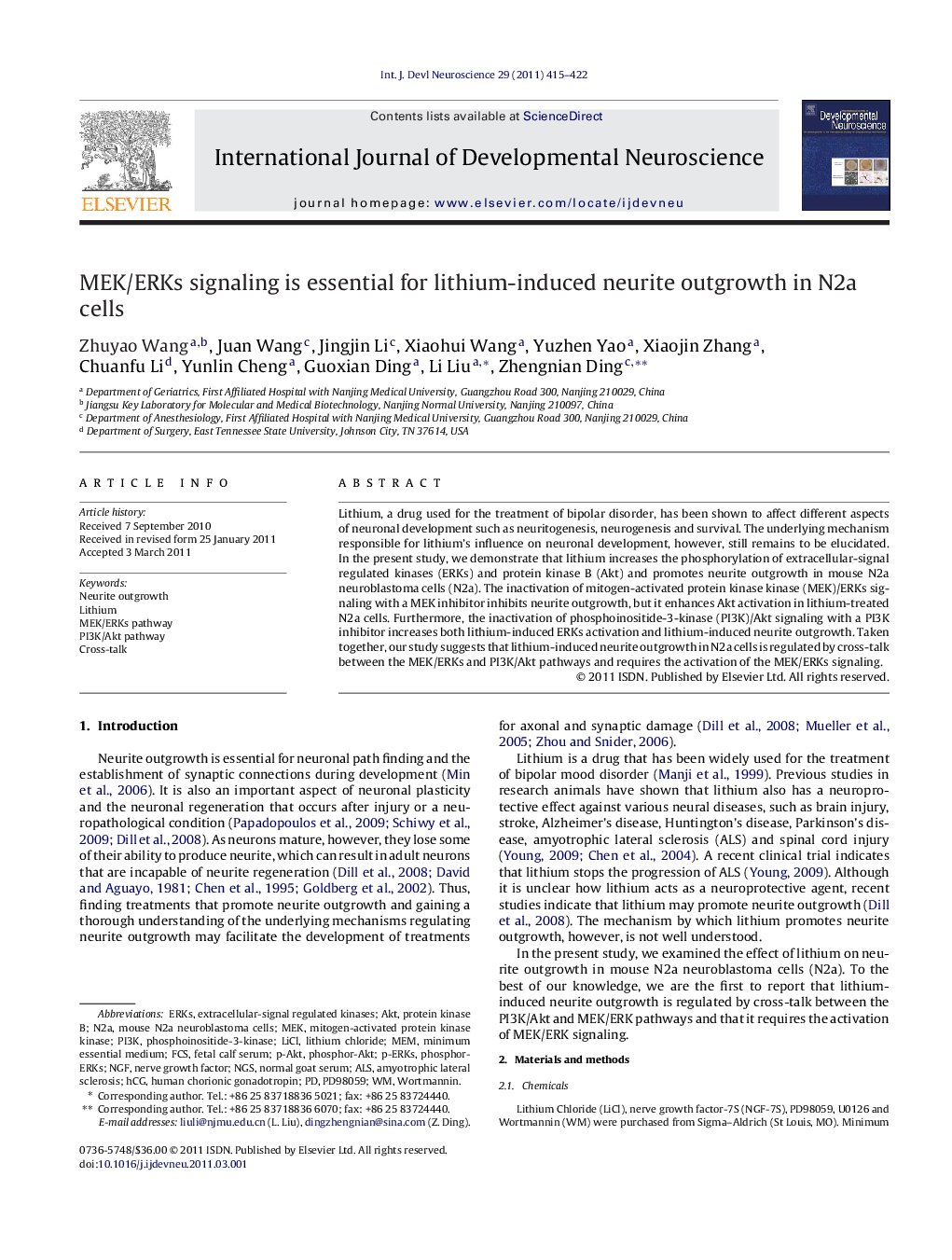| Article ID | Journal | Published Year | Pages | File Type |
|---|---|---|---|---|
| 2786696 | International Journal of Developmental Neuroscience | 2011 | 8 Pages |
Lithium, a drug used for the treatment of bipolar disorder, has been shown to affect different aspects of neuronal development such as neuritogenesis, neurogenesis and survival. The underlying mechanism responsible for lithium's influence on neuronal development, however, still remains to be elucidated. In the present study, we demonstrate that lithium increases the phosphorylation of extracellular-signal regulated kinases (ERKs) and protein kinase B (Akt) and promotes neurite outgrowth in mouse N2a neuroblastoma cells (N2a). The inactivation of mitogen-activated protein kinase kinase (MEK)/ERKs signaling with a MEK inhibitor inhibits neurite outgrowth, but it enhances Akt activation in lithium-treated N2a cells. Furthermore, the inactivation of phosphoinositide-3-kinase (PI3K)/Akt signaling with a PI3K inhibitor increases both lithium-induced ERKs activation and lithium-induced neurite outgrowth. Taken together, our study suggests that lithium-induced neurite outgrowth in N2a cells is regulated by cross-talk between the MEK/ERKs and PI3K/Akt pathways and requires the activation of the MEK/ERKs signaling.
► Lithium promotes neurite outgrowth. ► Lithium activates the MEK/ERKs signaling pathway and the PI3K/Akt signaling pathway. ► Inactivation of MEK/ERK signaling enhances lithium-induced activation of PI3K/Akt signaling and inhibits lithium-induced neurite outgrowth. ► Inactivation of PI3K/Akt signaling increases lithium-induced activation of MEK/ERKs signaling and lithium-induced neurite outgrowth.
